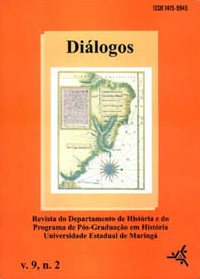A MERCANTILIZAÇÃO DA CURA NO BRASIL (1890-1920): UMA INVESTIGAÇÃO A PARTIR DE UBERABINHA/MG
Résumé
Resumo. Este artigo tenta discutir a criminalização do curandeirismo no Brasil entre 1890 e 1910, tratando, no plano da documentação primária, a história dos curandeiros em Uberabinha/MG. O argumento central indica que o recurso à lei com o objetivo de punir os curandeiros traduzia uma reforma mais profunda nos modos de viver dos trabalhadores. Num contexto em que ganhava força uma abordagem cientificista no país, que definia o monopólio sobre a cura, a classe dominante recorreu à legislação criminal que condenava o curandeirismo e a falsificação da medicina, utilizando-a como munição a ser empregada na luta de classes. Assim, procuro discutir como pesaram na transformação do curandeirismo em crime os seguintes fatores: a) a monopolização da cura como recurso para a sua mercantilização; b) a expropriação do trabalhador por meio da reforma em seus modos de viver; c) a utilização das leis contra curandeirismo como instrumento de disputa político-partidária. Abstract. This article tries to show the criminalization of the shaman in Brazil during the Old Republic, talking about the shaman's history in Uberabinha/MG according to the primary documentation. The central argument indicates that the resource of the law with the objective of punishing the shaman illustrated a deeper reform in the manners of living of the workers. In a context in that a scientist approach became stronger in the country that defined the monopoly of the cure, the dominant class fell back upon the criminal legislation that condemned the shaman and the falsification of the medicine, using it as an instrument to be used in the class warfare. Like this, I tried to discuss their importance in the transformation of the shaman into criminal with the following factors: a) the monopolization of the cure as resource for its sale with merchandise; b) the worker's expropriation through the reform in their manners of living; c) the use of the laws against shaman as instrument of political dispute.Téléchargements
DECLARAÇÃO DE ORIGINALIDADE E CESSÃO DE DIREITOS AUTORAIS
Declaro que o presente artigo é original, não tendo sido submetido à publicação em qualquer outro periódico nacional ou internacional, quer seja em parte ou em sua totalidade. Declaro, ainda, que uma vez publicado na revista DIÁLOGOS, editada pela Universidade Estadual de Maringá, o mesmo jamais será submetido por mim ou por qualquer um dos demais co-autores a qualquer outro periódico. Através deste instrumento, em meu nome e em nome dos demais co-autores, porventura existentes, cedo os direitos autorais do referido artigo à Universidade Estadual de Maringá e declaro estar ciente de que a não observância deste compromisso submeterá o infrator a sanções e penas previstas na Lei de Proteção de Direitos Autorias (N. 9609, de 19/02/98).
STATEMENT OF ORIGINALITY AND COPYRIGHT CESSION
I declare that the present article is original, has not been submitted for publishing on any other national or international journal, neither partly nor fully. I further declare that, once published on DIÁLOGOS journal, edited by the State University of Maringá, it will never be submitted by me or by any of the other co-authors to another journal. By means of this instrument, on my behalf and on behalf of the other co-authors, if any, I waive the copyright of said article to the State University of Maringá and declare that I am aware that non-compliance with this commitment will subject the violator to sanctions and penalties set forth in the Copyright Protection Law (No 9609, of 19/02/98).

















